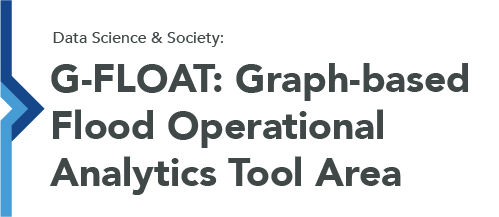Editor’s note: LimeLight is a regular feature from WRAL TechWire offering another means of publishing noteworthy news. Be sure to check out more LimeLight worthy news at this link.
+++
CHAPEL HILL – The inaugural winning teams of the Looking Forward funding program – co-created by Chancellor Kevin M. Guskiewicz of the University of North Carolina at Chapel Hill and Chancellor Harold L. Martin of North Carolina Agricultural and Technical State University – have been announced. The program was established to incentivize collaborative teams that represent and leverage the strengths of each institution equally, with the goal of providing solutions to complex issues facing the citizens of North Carolina and beyond.
“Our goal with this partnership is to expand the research capabilities of both our university and N.C. A&T and to build a foundation for the future,” said Guskiewicz. “We are proud of our culture of collaboration across the UNC System and these researchers embody that practice. Their projects will tackle critical challenges facing our state.”
“Looking Forward builds on many years of partnering with our colleagues at UNC-Chapel Hill and substantially broadens our commitment to find solutions to important societal problems that directly affect the lives of people in our communities,” said Martin. “We expect this initiative to have far-reaching impact and continue to enhance opportunities for collaborations in the future.”
Launched earlier this year, the Looking Forward program sought proposals in four priority areas where meaningful improvements on issues faced across North Carolina can be made: Data Science and Society, Environment and Environmental Justice, Health Disparities, and Cancer and Cancer-Related Research.
“This program is a true collaborative partnership, and itʼs through that same spirit we solicited input from research teams,” said UNC-Chapel Hill Interim Vice Chancellor for Research Penny Gordon-Larsen. “We looked for teams that equally represented each institution through intellectual contributions and investigative teams, and that demonstrated a desire to have impact on the citizens we serve as leading research institutions in North Carolina.”
One team was selected from each priority area to receive $200,000 in award funding over a two-year period. The inaugural winning teams are:
Team Leads:
- Christoper Bizon, the Renaissance Computing Institute, UNC-Chapel Hill
- Leila Hashemi-Beni, Built Environment, College of Science and Technology, N.C. A&T
Utilizing 34 complex data streams from sources such as weather, humans, built infrastructure, and power, the team will pilot an emergency response data modeling tool generalizable enough to be useful in contexts within and outside of North Carolina.
Team Leads:
- Rick Luettich, Earth, Marine, and Environmental Sciences, College of Arts & Sciences, UNC-Chapel Hill
- Liping Liu, Mathematics, College of Science and Technology, N.C. A&T
Tropical cyclones are the primary environmental driver of catastrophic loss in low-lying coastal areas of eastern North Carolina. Building upon data collected during previous storms, the team will develop a comprehensive model to produce more accurate plans for future catastrophic storm events and will evaluate human welfare impacts for emergency planners.
Team Leads:
- Becky White, Division of Infectious Diseases, School of Medicine, UNC-Chapel Hill
- Sharon Parker, Sociology and Social Work, College of Health and Human Sciences, N.C. A&T
Monitoring the prevalence of large clusters of infection within confined group settings, the research team will employ survey tools to understand testing and vaccination rates in real-time within a large jail in Wake County, N.C., as well as when the survey respondents return to their home communities.
Team Leads:
- Russell Broaddus, Pathology and Laboratory Medicine, School of Medicine, UNC-Chapel Hill
- Emmanuel Obeng-Gyasi, Built Environment, College of Science and Technology, N.C. A&T
Addressing an alarming rise in the prevalence and mortality for endometrial cancer – particularly among Black women – the team will collect and analyze data about exposure to endocrine-disrupting pollutants and attempt to determine if there is a relationship between the two.
After the call for Looking Forward proposals was issued earlier this year, the new program received thirty-four expressions of interest, representing more than 100 faculty between the two institutions, along with non-academic collaborators and community partners like Research Triangle Institute International. After a peer review of the initial submissions, 14 teams were invited to compete as finalists. Funding for Looking Forward was made possible by the chancellorsʼ offices at each institution and by the UNC Lineberger Cancer Center.

































